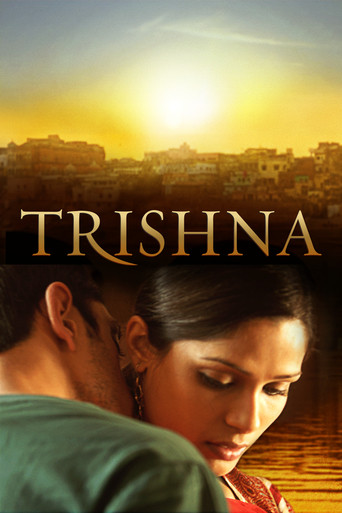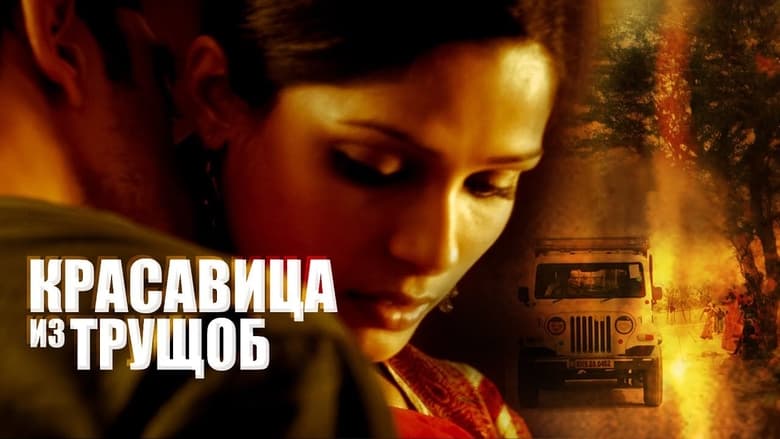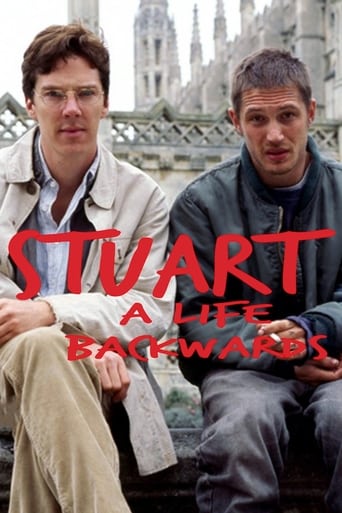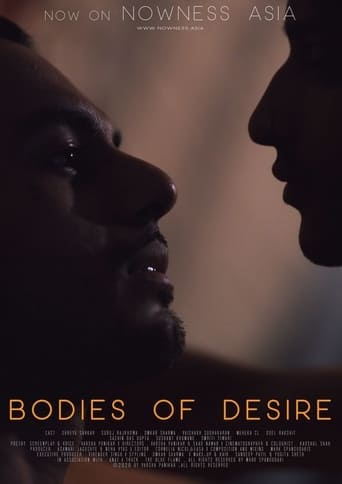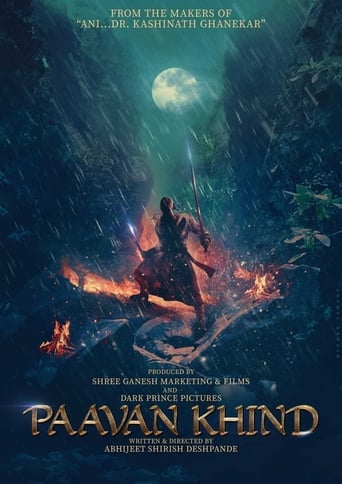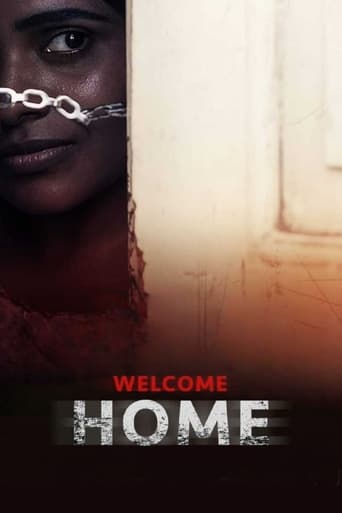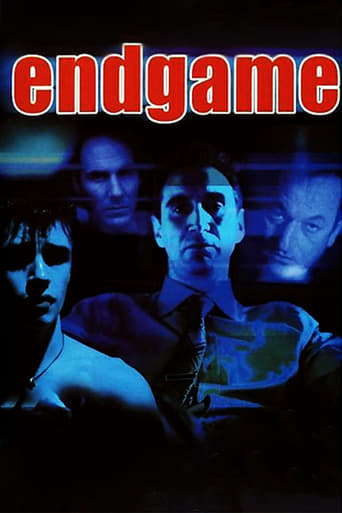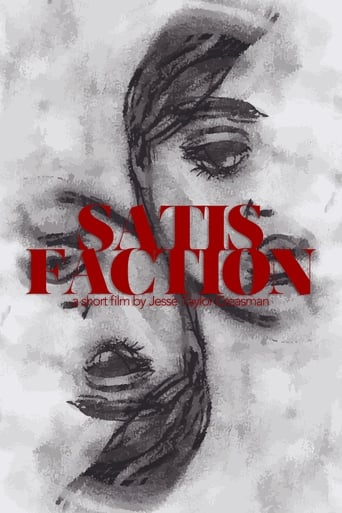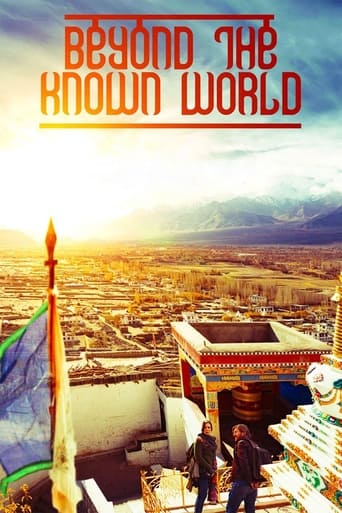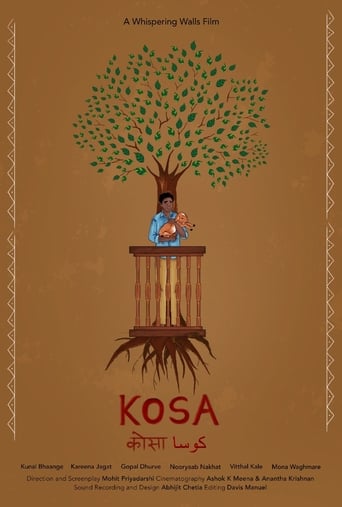Trishna (2012)
When her father is killed in a road accident, Trishna's family expect her to provide for them. The rich son of an entrepreneur starts to restlessly pursue her affections, but are his intentions as pure as they seem?
Watch Trailer
Free Trial Channels
Cast


Similar titles
Reviews
Intense, gripping, stylish and poignant
Am I Missing Something?
It’s not bad or unwatchable but despite the amplitude of the spectacle, the end result is underwhelming.
Let me be very fair here, this is not the best movie in my opinion. But, this movie is fun, it has purpose and is very enjoyable to watch.
About halfway through the film, why does rich boyfriend start behaving so badly? I've pondered this and come to a simple answer: Because he can. He's not merely financially comfortable, he's so wealthy that his freedom is practically unbounded and he can get away with just about anything. Society (including the legal system) imposes very few limits on BF's conduct. His world-weary father seems nice to Trishna, but in a sort of condescending, noblesse oblige way. There's certainly no requirement that he be nice to her.Unfortunately I don't think writer-director Winterbottom dramatizes any of this particularly well. During the 2nd half of the film, BF's badness is as inexplicable to us as it is to Trishna.Nevertheless, I give the film credit for the romantic and fun first half. The music is wonderful, Trishna and BF are gorgeous (really) and the photography of India is better than a lot of western directors achieve.
Michael Winterbottom's "Trishna" is the fourth theatrical adaptation of Thomas Hardy's 1891 novel "Tess of the d'Urbervilles." The first two adaptations, silent films released in 1913 and 1924 respectively, have since been declared lost. The next adaptation, however, was well preserved even before its American premiere in 1980. This would be Roman Polanski's "Tess," a romantic melodrama that, like the novel, was set in Victorian England. "Trishna," a modernized retelling that shifts the setting to India, is very much like "Tess" in that it tells the story of an innocent young woman whose life is ultimately destroyed by love, societal values, unfortunate turns of events, and above all, male dominance. It's tragic, but not unnecessarily so; we understand the gravity of the situation, and we recognize that the conclusion is inescapable.Trishna (Freida Pinto) lives a meager existence with her large family in a village in Rajasthan. The eldest daughter, she helps pay the bills by working at a nearby resort as a greeter and cocktail server. It's during one of her night shifts that she meets a British businessman named Jay (Riz Ahmed), the son of an ailing but wealthy property developer (Roshan Seth). Jay has come to India at his father's request to manage a luxury resort in Jaipur. His initial meeting with Trishna was essentially only a casual encounter; it isn't until her father destroys his Jeep and hurts himself in an accident that their relationship becomes much more serious. That's when Jay offers Trishna the chance to work at his hotel for a relatively sizeable sum, enough to provide for her family. During her time as his employee, they fall in love, and in due time, they have sex.In Polanski's film, Tess is raped and soon thereafter gives birth to a sickly baby that immediately dies. In Winterbottom's film, Trishna's inevitable pregnancy is terminated under duress from her father, who is, to put it mildly, old fashioned. In both films, the title characters have been saddled with the same secret, one that could forever ruin a potentially happy life with the men they love. Jay, a combination of the Alec Stokes-d'Urberville and Angel Clare characters from "Tess," is initially not made aware of Trishna's pregnancy or the resulting abortion, allowing for scenes that give Trishna hope for a better life. She and Jay eventually move to Mumbai, where both dabble in the Bollywood scene, Trishna in front of the camera and Jay behind. The cracks eventually begin to show on their seemingly solid relationship, most interestingly when they tour their new apartment and Jay shows Trishna the kitchen.Although Jay seems to be in love with Trishna, he will in due time make the most astounding of transformations, namely from a charming young man into a controlling monster. Ideally, Trishna would have been able to approach him with news of her pregnancy. Realistically, she's part of a culture where having a child out of wedlock is considered disgraceful, not just for the woman but for her family as well. This is despite the fact that there have been advancements in economic growth, mobility, and education, both in urban and rural areas. With this in mind, exactly how could Trishna confess to Jay? You'd think he'd be more progressive, considering his British upbringing, but the truth is that he's essentially a spoiled brat who flaunts his status as a fiancée would her ring.The other side of the issue is Trishna's father, a man so traditional that not even the good money she earns can persuade him to look past her sin – which, incidentally, may not have been a sin at all but rather an act that was forced upon her. So now it comes down to an issue we tend to dance around, especially in circumstances like this: Was it consensual, or was it rape? It may not be as clear cut as it seems; Jay's initial act of kindness, coupled with his handsome looks and alluring demeanor, effectively reduced the naïve and impressionable Trishna into a state of total submission, which is to say that she probably would have jumped off a cliff if he asked her to do so. It was more mental than physical, I believe. He took advantage of a situation by seducing her. Regardless, her resulting pregnancy made her damaged goods in the eyes of her father.This, combined with Jay's drastic personality shift, paves the way for a deeply unpleasant yet highly appropriate ending. Unlike "Tess," in which the possibility of a happy turnaround carried through to the final shot, "Trishna" makes it abundantly clear that no such possibility exists. The title character is nothing more or less than a hapless victim of circumstance. If my description of this movie has made it sound like an overwrought soap opera, you should know that I don't believe the plot was intended to be the main focus. It's really more about character development, specifically in relation to culture, and theme. We see that Trishna is in distress, and we feel her pain, and within the context of the story, we understand the reasons behind every decision she makes.-- Chris Pandolfi (www.atatheaternearyou.net)
This film had tremendous potential and a kicking story line. Sadly it was ruined by the poor direction and excessive focus on irrelevant detail which added no true value to the movie. Even though set in the right location and a good attempt to grasp the culture and traditions of a dated village in India,Freida Pinto's fluent English contradicted her character representation. Similarly, Riz Ahmed'a acting was shockingly bad given his performance in Four Lions. He failed to really relate to the character and the level of darkness which was clearly being represented by Jay in the movie was played without flair and a certain discomfort by Ahmed. Both stars failed to live up to their previous performances and to generally portray any chemistry on screen. The film itself lacked substance in the message it sent and the story it told. Poorly directed and an epic failure in representing Asian talent in English Cinema.
I was lucky enough to attend the world premiere of Trishna at the Toronto International Film Festival. Here is what I thought of it: The story is based on one of the most celebrated pieces of literature of all time, Thomas Hardy's "Tess of the d'Ubervilles". Director Michael Winterbottom takes this classic tale and adapts it for modern audiences by changing the setting to contemporary India. Does this work? Surprisingly, it does, and this is coming from someone who hasn't ever read the novel nor seen the 1979 Academy Award winning film adaptation from Roman Polanski, "Tess". The titular character, Trishna (Freida Pinto), is a humble, soft-spoken young woman and the eldest daughter of a poor, rural, Indian family. While working at a nearby resort to help pay the bills, she is swept off her feet by a young British businessman, Jay (Riz Ahmed), who finds himself in India to manage a hotel at the request of his father, a wealthy property developer. When Trishna's father is severely injured in an automobile accident, Jay asks her to work for him, and she shyly accepts. Their feelings for each other grow the more they spend time together. However, Trishna isn't easily torn away from her beloved family nor her traditional life nor her ambition as a dancer, and she's in for some drastic changes when she moves to Mumbai with her lover. To be honest, I really didn't know what to expect from this film. I entered the theatre only knowing two things about it: (1) the story is based on a classic novel and (2) it's set against an Indian backdrop. Never would I have guessed-- even at an hour and a half into the film-- that this simple premise would progressively turn into something a lot more shocking, to say the least (the last 10 minutes made the whole audience gasp simultaneously). This is a unique kind of cinema that really transgresses the boundaries of conventional filmmaking with the way it develops a seemingly simple story and with the many reactions it gets out of the audience as it unfolds. I guess you could call the film a little deceiving, because it never goes in the direction you imagine it would go. But I'm not suggesting that there's a plot twist at the end, so please don't go expecting that. What makes the ending so shocking, then? It's all due to the gradual, subtle buildup that does a great job developing the characters of Trishna and Jay as their relationship becomes increasingly odd and discomforting for the viewer. I don't know if I was alone here, but as I was watching the film, I was kind of going through what Trishna had to go through-- emotionally, of course. I believe this confirms that Freida Pinto still has what it takes to deliver a solid performance since her "Slumdog Millionaire" fame. The acting isn't anything amazing or noteworthy, but there's no denying that she does a good job in her role, despite being a little inconsistent in some scenes of dialogue between her and Riz Ahmed, the male co-star who plays Jay. He was surprisingly decent for a relatively unknown industry newcomer, but-- once again-- nothing extraordinary. To be honest, if it weren't for this ending, the film's many flaws would be significantly more distinctive and visible for me. I just can't get over how well everything is tied together in the last few scenes. This is where Michael Winterbottom finally achieves in putting his point across; in making sense out of the film as a cohesive whole. Apart from the unique structure and progression of the story, "Trishna" has many other memorable elements. I was particularly blown away by the beautiful, on-location shots and nearly candid cinematography that gave us a very realistic perception of life in India, and the clearly-defined division between both social classes. I loved how a great deal of non- actors were used in the production of the film (for instance, Freida Pinto claimed that her character's family was in fact a real family in rural India who cooperated with the crew). Throughout the entire film, there's so much absorbing beauty in all the outside locations in India that you won't believe your eyes! For the mere fact that what you're seeing in the background is completely real, you should be as blown away as I was while watching the film! It's breathtaking! This exquisite imagery is backed up by a powerful original score from Mike Galasso that complements the Indian countryside and the Mumbai cityscape without ever sounding too traditional or foreign. Music plays a key role in enhancing the emotion of this particular film. Despite all of these admirable aspects, this film is far from being perfect (though the concept of perfection is, in itself, flawed). I still question the pertinence of certain scenes in the film, as well as the strength of the narrative structure. Will "Trishna" stand the test of time? Will it live up to its original power upon multiple viewings? I'm inclined to say "no" to both of these questions, despite being very affected by this piece of cinema. It was clear that most of the audience wasn't very impressed by such avant-garde cinema, but I'm sure I wasn't the only one who admired it in so many ways. To me, this film feels like a one-time experience; an interesting artistic vision capable of marking you and staying with you for some time. So, go ahead! Whenever you get the chance to see this film, I say "go for it!". It's something refreshingly unconventional that you might find yourself drawn by for the same reasons as me! I recommend seeing "Trishna" because of its ultimately shocking, thought-provoking nature. Come on! You have nothing to lose! (Except a small sum of money, perhaps.)

